Pharoahe Monch Phone Number, Fanmail Address, Autograph Request and Contact Details
If you want to know about Pharoahe Monch real phone number and also look for Pharoahe Monch email and fanmail address then, you are at the correct place! We are going to give you the contact information of Pharoahe Monch like his phone number, email address, and Fanmail address details.
Pharoahe Monch Contact Details:
REAL NAME: Pharoahe Monch
NICKNAME: Pharoahe Monch
DOB: 31 October 1972 (age 49 years)
BIRTHPLACE: Queens, New York, United States
NATIONALITY: American
BIRTH SIGN: Scorpio
PROFESSION: American rapper
FATHER: Not Known
MOTHER: Not Known
SIBLINGS: NA
SPOUSE /WIFE : NA
CHILDREN: NA
INSTAGRAM: https://www.instagram.com/pharoahemonch/
TWITTER: https://twitter.com/pharoahemonch
FACEBOOK: https://www.facebook.com/pharoahemonch
YOUTUBE CHANNEL: https://www.youtube.com/user/PharoaheMonchtv/featured
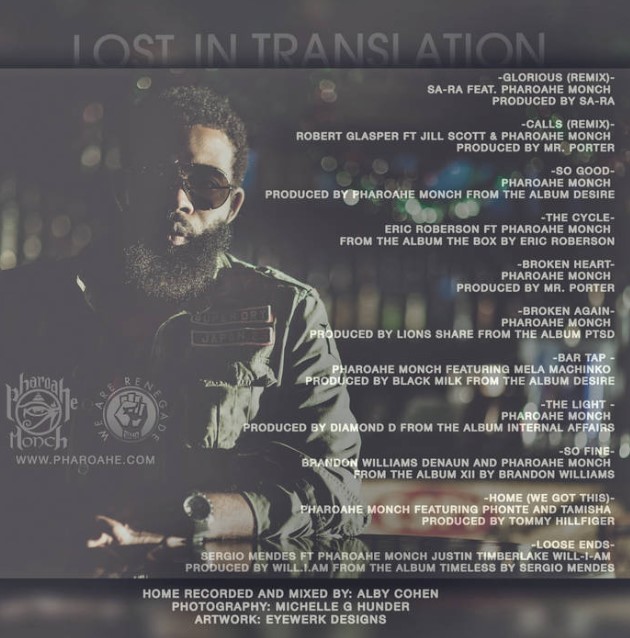
Pharoahe Monch Bio
Troy Donald Jamerson is a rapper and musician who performs under the stage name “Pharoahe Monch.” He is most recognised for his work in the hip-hop genre. His sophisticated delivery and rapping technique, as well as his internal and multisyllabic rhyme schemes, have garnered him a lot of attention throughout the years. He attended the High School of Art and Design in Manhattan after spending his childhood years in the borough of Queens. The song “Simon Says” that he created was included in the film Charlie’s Angels, which was released in the year 2000. The rap group Organized Konfusion, which he co-founded with his business partner Prince Poetry, is responsible for the release of three albums: Stress: The Extinction Agenda, The Equinox, and the group’s self-titled album. His vocal approach takes jazz as its primary source of creative motivation. He collaborated with Nate Dogg on the song “Oh No,” which was released in 2013.
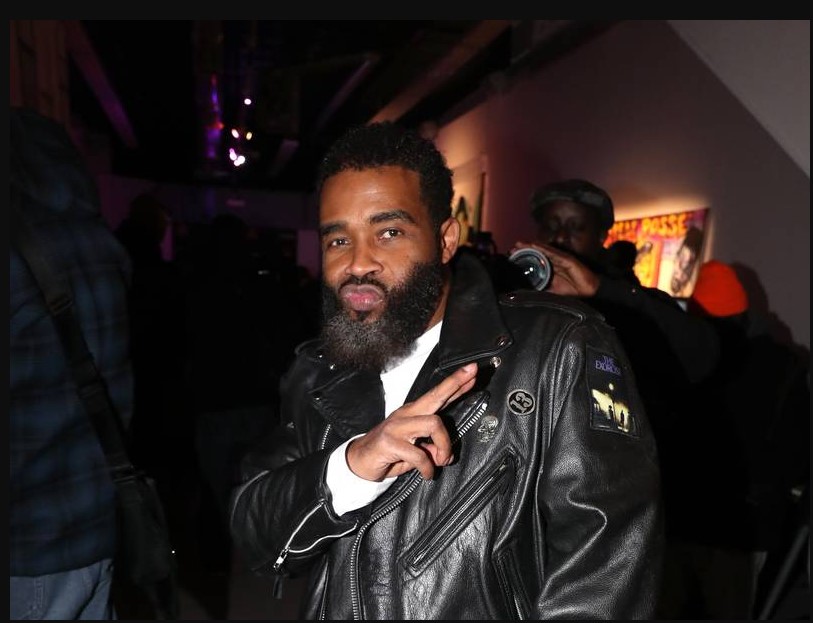
The monkey toy known as the Monchhichi was the inspiration for the name Pharoahe Monch. After Monch got a horrible haircut that made him seem like a “chimpanzee,” the other female students in his class at the High School of Art and Design began to tease him and nicknamed him “Monchhichi.” This nickname was eventually shortened to just “Monch.” After Monch had gotten to meet Prince Po, who would later become a member of Organized Konfusion, he decided to use the prefix “Pharoahe.” Monch has recorded three albums as a member of the rap duo Organized Konfusion, which he formed with his partner Prince Poetry. These albums are named Stress: The Extinction Agenda, The Equinox, and the group’s self-titled album. The two individuals were responsible for the production of a significant percentage of the music included on these albums.
Each album received favourable reviews from music reviewers, despite the fact that sales were just average. As a direct consequence of this, the duo broke up in 1997, just after finishing the recording of their very last album, titled The Equinox. Since then, Prince Poetry has dismissed the possibility of reuniting with Organized Konfusion to perform their music. Following that, Pharoahe Monch became a member of the indie record company Rawkus Records. After appearing as a guest on a number of albums, including the top-selling Rawkus collection Soundbombing II, Monch finally released his long-awaited debut album, titled Internal Affairs, in the year 1999. The album’s debut single, “Simon Says,” was a huge success, climbing all the way up to No. 97 on the Billboard Hot 100 chart.
In addition, it had roles in the films Charlie’s Angels and Boiler Room, both of which were released in the year 2000. Despite the song’s widespread acclaim, controversy ensued when Monch was found to have sampled a hook originally recorded by Akira Ifukube for his song Gojira Tai Mosura and used it in his song. As a consequence of the unaccounted-for usage of the sample, the distribution of his record was put on hold. Pharoahe would not release another solo effort for a considerable amount of time after the controversy that surrounded his popular song and the release of his album Internal Affairs. Despite this, he continued to create music and make cameo appearances in movies and television shows. Alongside Mos Def and Nate Dogg, he appeared on the hit song “Oh No,” which was included on the compilation album Lyricist Lounge 2 released by Rawkus in the year 2000.
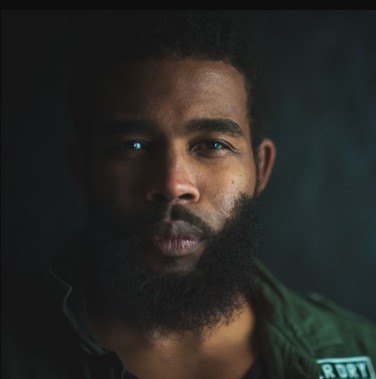
He provided his rapping skills for the theme song of Madden NFL 2002. “Agent Orange” was the last single that Pharoahe released under the Rawkus Records label, and it was released in 2003. The conflict served as the primary creative impetus for this reimagining of the Organized Konfusion song “Releasing Hypnotical Gases,” which was first released in 1991. In addition to this, Pharoahe is a member of the hip hop collective known as The HRSMN. Even though there are only four real members, he is usually related to joining the group in the future when/if they develop. This is despite the fact that there are only four genuine members.
There were rumours circulating that Denaut Porter’s new Shady Records label Runyon Avenue may be the one to release his forthcoming album, which was at first provisionally titled Innervisions. It would seem that we were unable to reach an agreement over the deal. Later on, Monch made the announcement that he had signed a contract with Street Records Corporation. Street Records Corporation is the record label of Wu-Tang Clan, David Banner, and Terror Squad. They had initiated contact with Stevie Wonder and were in the first phases of the album’s recording process. On December 19, 2006, Pharoahe Monch released The Awakening, his very first and only official mixtape. Clinton Sparks and DJ Boogie Brown served as the mixtape’s hosts at the time of its release. Desire, Monch’s second solo album, was released in June of 2007, and it was met with nothing but praise from critics.
On the most recent album released by rap mogul Diddy, titled Press Play, Monch produced as well as ghostwrote the tracks The Future and Hold Up, which were written by Mobb Deep member Havoc. The assertion that Diddy’s rhymes unmistakably indicate Monch’s authorship, both in terms of the substance and the delivery, has been refuted by others. Pharoahe Monch and Royce da 5’9 were two of the judges that participated in the Ultimate MC television show that was broadcast in 2011. Other judges were Planet Asia, Organik, Sean Price, and others. The definition of “underground” is a topic that always sparks controversy. the phrase “chitterling circuit of hip-hop” refers to the early phases of a person’s career. However, for other people, the word simply refers to the music industry.
Domino, a hip-hop producer and CEO of Hieroglyphics Imperium Records, an underground label based in Oakland, California, stated that “once you get to a certain point, you cannot be considered underground anymore,” even if you are performing what some people define as underground music. Hieroglyphics Imperium Records is known as an underground label. “At one point in time, hip-hop as a whole existed in the underground. It was nowhere to be found in the mags. It wasn’t shown on any of the networks. It was not depicted in any of the films.
It was only sometimes broadcast on the radio. It hadn’t been brought to everyone’s attention yet, and not everyone had access to it.” Therefore, according to this point of view, a person transitions from the underground into the mainstream after they have established a foundation and a fan base for themselves. In other words, when a relatively unknown innovator advances and breaks into the mainstream, paving the way for the next wave of new talent to begin their own careers, the rap/hip-hop artist is no longer an associate of the underground scene. This is because the relatively unknown innovator made way for the next wave of new talent to begin their own careers.
Although most people feel that highly marketed performers like Puff Daddy and Will Smith are the opposite of what the underground movement stands for, there are other observers who regard commercial triumphs like Jay-Z and Redman to be subterranean, sometimes known as “true to the streets.” Pharoahe Monch shares the view that a rap artist may continue to be authentic while still pursuing his career. And despite the fact that hip-hop music, a genre that was originally designated for a more localized and urban audience, has gained widespread success, he continues to consider his works to be a part of and intended for the “underground” culture.
He shared with Kenon his belief that “some people believe that once you sell, you are not underground longer.” “That is not something I agree with. In my opinion, composing a song in an underground style refers to the strategy that you use.” Take for instance the artist’s successful track “Simon Says,” which was taken from the album Internal Affairs and released in 1999. According to SoundScan, the record sold more than 125,000 copies. Pharoahe continued by saying, “The rhythm has a really subterranean feel to it.” “I wasn’t anticipating it to get as much airtime on the radio as it did. This does not follow the standard structure of a rap song in any way. Lyrically, I wanted to speak to people in a manner that was straightforward and not offer them something to reflect on.”

Pharoahe unquestionably spent years enduring the trials and tribulations of the underground/streetwise scene prior to making it big, despite the fact that critics and fellow hip-hop artists now consider his music commercial because of the rapper’s widespread popularity. This is despite the fact that Pharoahe has since become widely popular. The future rapper was given the latter portion of his moniker while he was still a little child. He was born Troy Jamerson in 1972 in Jamaica, Queens, New York. Because of his laid-back demeanour and the popularity of a doll that was around at that time period, the young man’s female classmates dubbed him “Monch,” and he gladly embraced the nickname. He didn’t add “Pharoahe” until many years later, when he was in college and studying Egyptian history.
During this time, the younger version of Pharoahe had also begun to show an interest in rap music. He was such a devoted follower of rap and hip-hop that he made it a habit to attend the local “rap jams” that took place all around Queens. As recounted by Andy Crispell of New Musical Express, he said, “I’d take a drink and listen to the chopping and scratching, and feel pretty wonderful.” He grinned when making the statement. “However, after that, you’d go home, and things would go back to normal.” Soon, though, Pharoahe realised that a regular life wasn’t enough, and he made the decision to pursue a career in rap music. He started out by recording his own muffled and unprofessional records at home before moving on to recording with other people.
Pharoahe started his recording career once he had improved his technique, and he spent the following eight and a half years as a member of Organized Konfusion, which is considered to be one of the most acclaimed and lasting underground duos in rap music. While he was a student at Manhattan’s Art and Design High School, where he was majoring in illustration and photography, he became acquainted with his future business partner, Prince Poetry. Both wanted to develop their own unique kind of hip-hop while also using the skills they had learnt at art school. Run DMC and A Tribe Called Quest were important musical influences for both of them. He stated to Crysell that what they discovered was that everything is art. “Dance, spoken word, trash cans, people chatting on the street, and the architecture that surrounds you are all examples. Everything provides material for the rhymes.”
Outside of the mainstream, Pharoahe and Prince Poetry operated without any kind of boundaries or norms, and they never adhered to anybody else’s expectations except their own. Organized Konfusion often went against the grain when it came to making music since they were solely dedicated to themselves and their core fanbase. In 1991, the pair released their critically acclaimed first album, which was simply named “Self-Titled,” and in 1994, they released their critically acclaimed second album, which was titled “Stress: The Extinction Agenda.” Pharoahe and Prince Poetry disregarded the norms of the music business by adopting a defiant attitude toward the creation of this album. As a result, they issued “Stress,” a foreboding and powerful first single off the record.
Because it was an explicit song, “Stress,” Organized Konfusion was never played much on the radio, but the band continued to exist despite having poor album sales. Fans praised the pair for their expressive language and state-of-the-art production talents; as a result, the duo decided to move labels from Hollywood to Priority for their third album, which was titled The Equinox and was released in 1997. In spite of this, Pharoahe became dissatisfied when yet another album he released did not do as well as anticipated in terms of sales, and he began to wonder whether or not he should continue working in the music industry. After that, he decided to step away for a while to reevaluate his options, and he ultimately settled on giving his career as a solo artist another go. In 1998, shortly after Priority ended their contract, Pharoahe and Prince Poetry mutually severed their ties with one another.
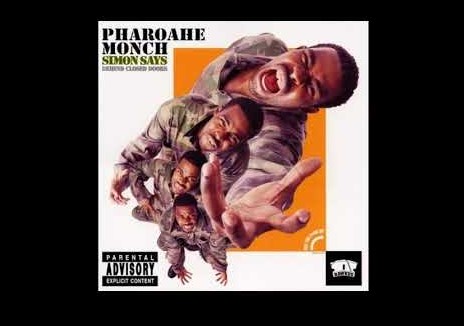
“When I signed with Rawkus [Records], I was like, ‘I’ll give you two songs that you can work, I assure you,'” he said in an interview with fellow hip-hop musician Mos Def, which was conducted by XXL writer Bonsu Thompson. “I’ll give you two songs that you can work, I guarantee you.” “You see, in order to establish a benchmark for the whole music business, Mos and I need to sell albums. For a young person of 14 years old who is just starting out in the industry to have the chance to think anything along the lines of “I want to be like Pharoahe, Mos, Talib, or G Rap,” because they are hearing it. That is the significance of sales to me.”
Pharoahe immediately began working on his first solo album, Internal Affairs, after securing a recording contract with Rawkus. He had previously contributed tracks to two landmark anthologies, namely Soundbombing II and Lyricists Lounge Vol. I. The album “Simon Says” was featured, which became a smash, ranking with such earlier tracks as House of Pain’s “Jump Around,” in cities throughout the United States and afterwards in Great Britain. It was included on the album, which was released before the end of 1999. After over a decade of working in the rap industry, Pharoahe’s calm existence came to an abrupt end when he was forced to run through the streets of Queens in order to dodge crowds of adoring admirers.
Pharoahe revealed to Crysell, “I am an introverted man who prefers isolation,” but he was aware that a successful career in hip-hop would make it harder to maintain a feeling of anonymity. “I am an introverted guy who enjoys alone,” Pharoahe said. “I am now constantly in front of people thanks to media outlets such as television and radio. I really hope that won’t bother them in the least.” Pharoahe solicited the assistance of a number of the most well-known figures in the industry for his album Internal Affairs. Among them were Redman, Method Man, Canibus, and Busta Rhymes, the latter of whom also produced the music video for “Simon Says.” They all claim that the prospect of financial gain was not what pulled them into the project; rather, it was their shared admiration for Pharoahe’s work with Organized Konfusion and the tremendous uniqueness it displayed.
Internal Affairs is Pharoahe’s most approachable album, and it has garnered high acclaim for its “adrenaline-fueled compositions that carry more punch than Mike Tyson in his peak,” as written by Thompson. This praise was given in reference to his collaborations with Prince Poetry. Pharoahe’s exceptional ability to match the lyrical and vocal talents of a varied spectrum of other rappers is more astonishing when one considers that he has had a lifelong health issue known as chronic asthma. This capacity is just as impressive. According to Mos Def’s comments to Thompson, “he’s probably the finest MC alive since he’s fighting against a massive disadvantage physically.” Thompson was informed this by Mos Def. “In light of the fact that he’s a chronic asthmatic, he’s definitely the greatest MC living.” “Those who are able to fully use their lung capacity are unable to repeat his rhymes.” The asthma did not often interfere with his performance, but when he had issues while playing in a Rock Steady concert in 1998, he determined to lead a better life by engaging in regular exercise and maintaining healthy eating habits.
Pharoahe explains that breathing is not only necessary but also vital for him to be able to rap. “When you hear music, you may have an interpretation of what role you play as an instrument in that piece,” he explained. “Other times, you may not have any such interpretation.” “You have to be able to breathe properly and understand when it is appropriate to do so. Saxophone players may be seen who play nonstop while also taking in breaths at the same time in order to maintain their flows.”
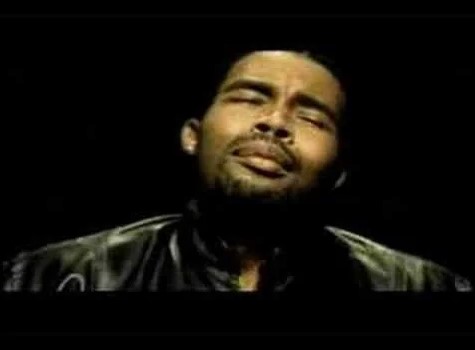
Pharoahe, who successfully enlightened rap listeners without alienating them and succeeded commercially without sacrificing his individual integrity and street sensibility, hoped that one day he would be able to try his hand at other forms of entertainment, specifically writing books and screenplays. Although he was content with his rise from the underground to wider recognition, Pharoahe hoped to one day try his hand at other forms of entertainment, specifically writing books and screenplays. “When I was a youngster, I always had a vivid imagination. I used to fantasies about autobahns and 007, and now that I’m really here, I can do both “he disclosed to Crysell. “And when I’m old and grey, I’ll be talking to my own kids about these days in Europe,” he said. ”
| Pharoahe Monch | |
|---|---|
| Phone Number | +1(929)508-0383 |
| House address (residence address) | Queens, New York, United States |
| Official Website | NA |
| Snapchat Id | NA |
| Whatsapp No. | NA |
| https://www.instagram.com/pharoahemonch/ | |
| https://www.facebook.com/pharoahemonch | |
| Spotify | NA |
| https://twitter.com/pharoahemonch | |
| TicTok Id | NA |
| Email Address | info@warmedia.com |
| Office address | NA |
| Office Number | NA |
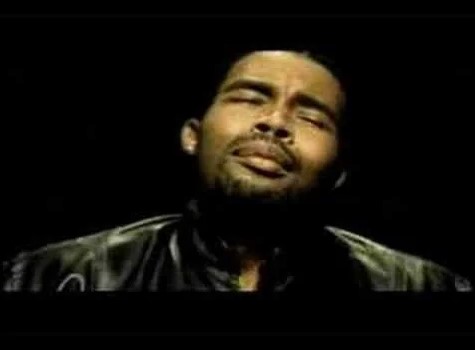
Best Methods to Contact Pharoahe Monch:
It is simpler to contact Pharoahe Monch with the below-written contact ways. We have composed the authenticated and verified communications methods data as given below:
1. Pharoahe Monch TikTok:
Pharoahe Monch has TikTok Account on his own title name. He is posting his videos regularly. Follow Pharoahe Monch on TikTok and also get the latest updates and video recordings from his account.
2. Pharoahe Monch Instagram: https://www.instagram.com/pharoahemonch/
Instagram is the most used social media platform. You will get a bio of each and a very famous personality over Instagram. Even you can make contact with them through direct messages using it. Likewise, you can utilize Instagram to see the Pharoahe Monch Insta profile and his latest pictures.
3. Pharoahe Monch Facebook: https://www.facebook.com/pharoahemonch
Facebook is also the most famous social media platform. You can get the bio of each and every famous personality on Facebook. You can also contact them through direct messages. Likewise, you can use Facebook to see Pharoahe Monch’s Facebook profile and his new pictures.
4. Pharoahe Monch Twitter: https://twitter.com/pharoahemonch
It is simpler to find and contact famous personalities by using the popular social media app Twitter. You can tweet using her Twitter id so that he could view your tweet and reply back to you with relevant answers.
5. Pharoahe Monch Phone Number, House Address, Email
Here we discuss the most common contact methods like his phone number of Pharoahe Monch, email address, and his fanmail address.
Phone number: +1(929)508-0383
Email id: info@warmedia.com
Pharoahe Monch Fanmail address:
Pharoahe Monch,
Queens, New York, United States
Read Also: Fabien Frankel Phone Number, Fanmail Address, Autograph Request and Contact Details